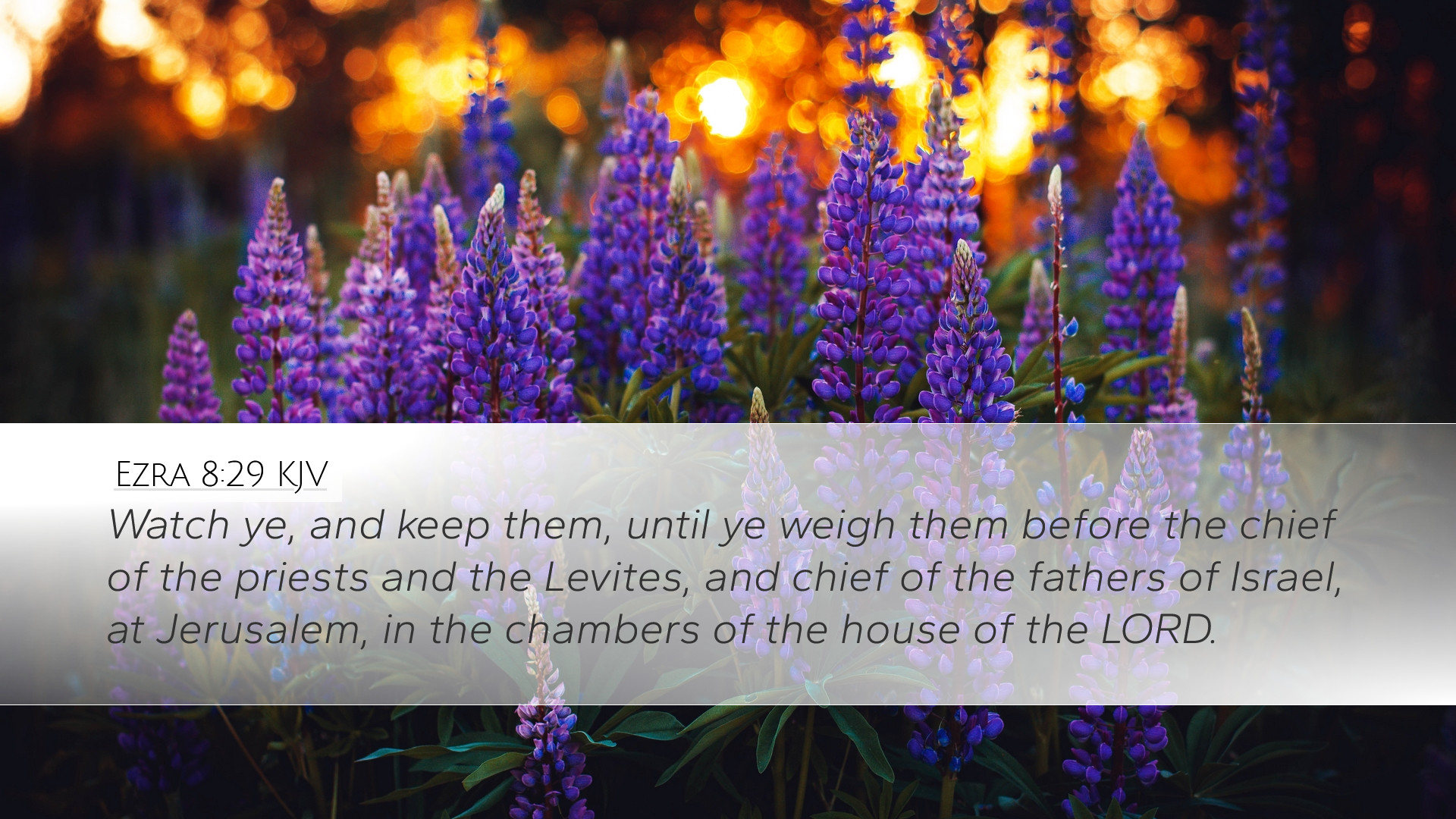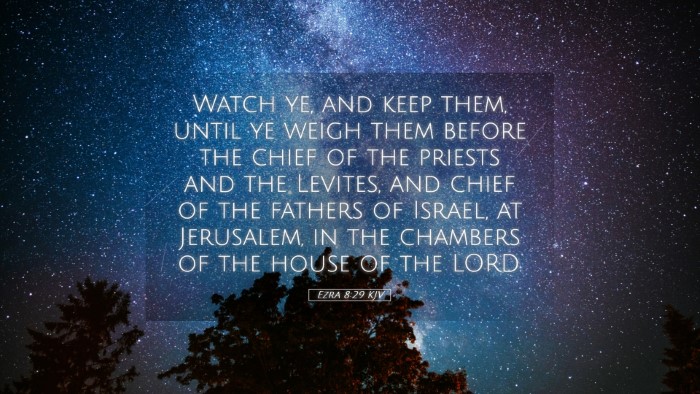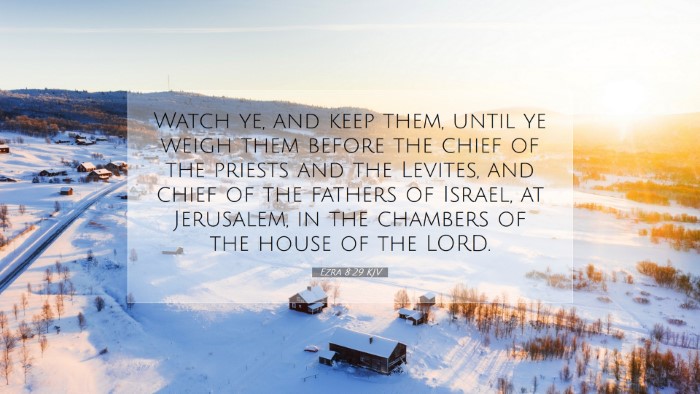Commentary on Ezra 8:29
Introduction: Ezra 8:29 is a verse that conveys a significant message about the sanctity and responsibility of the gifts presented to God, particularly in the context of the Israelite return from exile. Understanding this passage requires careful examination of its theological and practical implications, drawing insights from respected biblical commentaries.
Text of Ezra 8:29
“Watch ye, and keep them, until ye weigh them before the chief of the priests and the Levites, and the chief of the fathers of Israel, at Jerusalem, in the chambers of the house of the LORD.”
Analysis of the Verse
This verse appears within the narrative where Ezra is leading a group of exiles back to Jerusalem. The directive given here emphasizes both vigilance and accountability in handling the offerings that have been collected for the temple.
1. The Call to Watchfulness
Matthew Henry's Insight: Henry highlights the importance of watchfulness in spiritual matters. The phrase “Watch ye” signifies more than mere physical guarding; it calls for spiritual attentiveness. This diligence in safeguarding the treasures collected exemplifies the integrity and moral responsibility expected from leaders and those entrusted with sacred things.
Albert Barnes' Commentary: Barnes elaborates that the call to “watch” indicates a need for scrupulous oversight. It is imperative that those charged with caring for holy artifacts are aware of their significance and treat them with respect. This vigilance is akin to that required of pastors and church leaders in contemporary settings, who must ensure that spiritual gifts are handled appropriately.
2. The Responsibilities of the Priests and Levites
Adam Clarke's Observations: Clarke notes that the priests and Levites had a critical role in the distribution and management of these offerings. Their designation emphasizes that the work of ministry involves careful management of what is consecrated to God. This also establishes a precedent for accountability, suggesting that the church must have systems in place to safeguard its resources.
Application for Modern Context: For today’s church leaders, this serves as a reminder of their duty to protect and properly manage church finances and resources. The weight of responsibility should guide their actions, ensuring that all done in the church is above reproach and transparent.
3. Weighing Before Leadership
The Significance of Weighing: Ezra specifies that the offerings must be weighed before “the chief of the priests and the Levites, and the chief of the fathers.” This act of weighing is symbolic, representing the careful scrutiny and consideration of what has been dedicated to God.
Henry's Perspective: Henry argues that weighing implies a thorough evaluation of the gifts’ value and significance. This physical act reflects a spiritual truth: the importance of each offering brought before the Lord and an acknowledgment of God's provision, balance, and justice.
4. The Spatial Context: The Chambers of the House of the LORD
Understanding the physical location mentioned is also vital. The “chambers of the house of the LORD” signifies a sacred space where God's presence resides. This adds a layer of reverence to the act of weighing and distributing the offerings.
Barnes' Commentary: Barnes emphasizes that the sacred space implies that all transactions concerning the temple’s offerings should occur in an environment that reflects holiness. For pastors and theologians, it underscores that the church should always reflect the values of the Kingdom of God.
Theological Implications
Ezra 8:29 reveals crucial theological insights about stewardship, holiness, and accountability.
- Stewardship: All gifts and resources belong to God, and His people are called to manage these with care and integrity.
- Holiness: The Israelites were reminded of the holiness of their offerings, which were more than mere possessions; they were sacred commitments to God.
- Accountability: The instruction for oversight leads to a greater understanding of communal responsibility in the church. Every gift should be utilized according to God’s purpose.
Practical Applications for Pastors and Students
This verse provides profound applications for current church practices and leadership.
- Integrity in Ministry: Church leaders must exemplify integrity in their handling of church resources, ensuring funds are managed ethically and transparently.
- Educating the Congregation: Pastors are encouraged to educate congregations about the importance of offerings, not merely as contributions but as acts of worship.
- Creating Accountability Systems: The church should establish clear methods for accountability regarding the use of resources, echoing the modeling demonstrated by Ezra.
Conclusion
Ezra 8:29 serves as a timeless reminder of the sacred responsibilities that come with spiritual leadership. The insights gleaned from public domain commentaries enrich our understanding of how careful stewardship, accountability, and reverence for God's provisions remain crucial in the life of the church today. As leaders foster a culture of integrity and holiness, the church can effectively fulfill its mission in the world.


